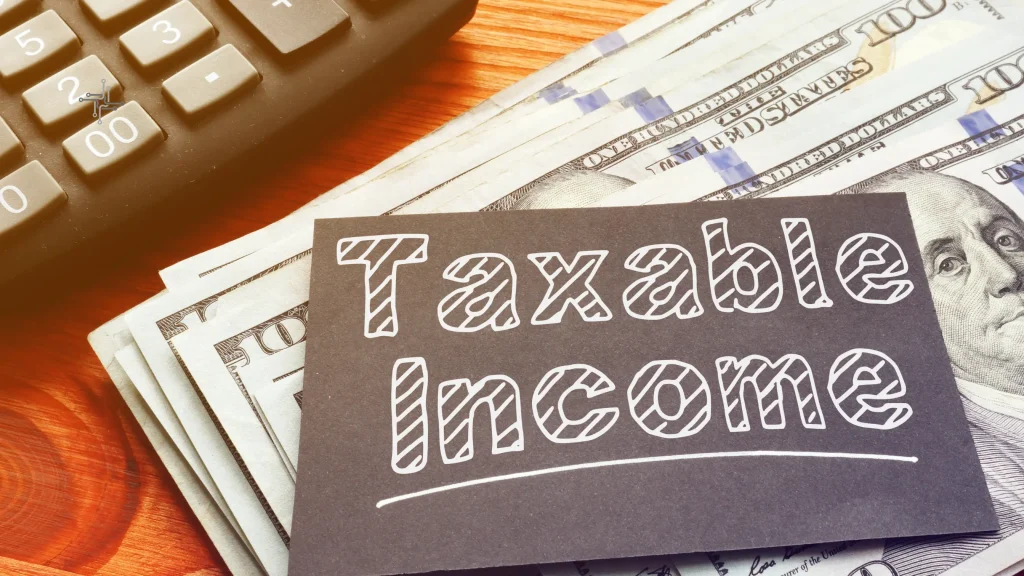Passive income is money you earn without active daily work. It comes from things like renting property, earning interest, or selling digital products. You do some work at the beginning, and then the money keeps coming. This type of income does not need your full-time effort. It’s different from a regular job or business where you work daily to earn money.
People like passive income because it gives them more freedom. It can add extra cash along with their regular job. Some hope to live off passive income completely. Many think it’s an easy way to get rich. But it still needs smart planning.
Table of Contents
Passive Income Types
1. Rental Income
Rental income comes from leasing out property like houses, apartments, or offices. You earn money monthly without working daily. However, you must manage tenants, repairs, and other issues from time to time.
This type of income is taxable. You must report the rent you receive. The good news is that you can deduct expenses like maintenance, insurance, and mortgage interest.
2. Dividends
Dividends are payments you get from owning stocks or mutual funds. Companies share profits with their investors in this way. You don’t have to do anything extra once you buy the shares.
Dividends are taxable. Some are taxed at a lower rate if they are qualified dividends, while others are taxed like regular income.
3. Interest Income
This income comes from bank savings, bonds, or lending money. It builds slowly but is a safe way to earn money. You don’t need to manage anything actively.
Interest income is taxable. Banks usually send you a form, and you must report it when filing taxes.
4. Royalties
Royalties are paid for creative work like books, music, software, or inventions. You earn every time someone buys, downloads, or uses your content.
This type of income is taxable. Whether it’s a one-time payment or ongoing royalties, it must be included in your tax return.
5. Digital Products
You can sell things like eBooks, courses, or software online. After setup, people buy these products without you doing daily work. It’s popular among creators and educators.
Income from digital product sales is taxable. Whether you sell once or often, you must report all earnings and pay tax.
6. Affiliate Marketing
You promote other people’s products using special links and earn a commission when someone buys through your link. Once the system is set up, it needs little effort.
Affiliate income is taxable. It counts as business income and must be reported, even if you earn a small amount.
7. Online Businesses
Some people set up blogs, dropshipping stores, or ad-based websites that run on automation. These businesses can generate passive income over time.
This income is taxable. All profits from sales, ads, or services must be reported. You may also qualify for deductions on business costs.
How Passive Income Is Taxed
Passive income is taxed differently based on how you earn it. Most types like rental income, interest, royalties, dividends, and online business income are taxable. You must report them when you file your annual tax return. Some types, like qualified dividends, may be taxed at a lower rate. Others, like income from affiliate marketing or selling digital products, are taxed as self-employment income if you actively manage the business.
The IRS treats most passive income the same as regular income. However, if you earn money through things like rental properties, you may also be allowed to deduct certain expenses. This includes things like repairs, insurance, and loan interest. These deductions can lower your taxable income, but you must keep clear records.
In some cases, passive income can trigger self-employment taxes, especially if it comes from running an online business. This adds extra taxes for Social Security and Medicare. Also, if your passive income business loses money, the IRS may not let you claim the full loss right away. They have passive activity loss rules that may delay those deductions.
Taxable vs. Non-Taxable Passive Income
Passive income is mostly taxable, but not always. The IRS taxes income that adds to your wealth, even if you don’t work for it daily. Common taxable types include rental income, dividends, interest, royalties, affiliate income, and online business earnings. These must be reported on your tax return. Some may be taxed at regular rates, while others, like qualified dividends, may be taxed at lower capital gains rates. Also, if you run a business that earns passive income, you might have to pay self-employment tax too.
On the other hand, some passive earnings are not taxed right away. For example, interest earned in a tax-deferred retirement account, like an IRA or 401(k), is not taxed until you withdraw it. Similarly, selling your home may allow you to skip taxes on a portion of the gain if you meet certain conditions. Some gifts, inheritances, and municipal bond interest may also be tax-free. Always check the rules to know what counts.
Deductions and Credits for Passive Income
While passive income is usually taxable, there are ways to reduce the amount you owe through deductions and credits.
Deductions for Passive Income
If you earn passive income from rental properties, you can deduct expenses like mortgage interest, property taxes, repairs, and maintenance. Additionally, if you have a home office or use part of your home for business, you might be able to deduct some related costs. For online businesses and affiliate income, deductions can include business expenses like website hosting, marketing, and supplies.
Depreciation for Rental Properties
One key deduction for rental income is depreciation. The IRS allows you to deduct the value of your property over time, even though it may still be increasing in value. This can significantly reduce your taxable income, especially in the early years of owning a rental property. However, when you sell the property, you might have to pay taxes on the depreciation deductions you took.
Tax Credits for Passive Income
Some tax credits are available to reduce your overall tax bill. For instance, the Earned Income Tax Credit (EITC) may apply to low-income earners, though it usually doesn’t apply to passive income. Additionally, energy-efficient home credits can be used if you’ve made improvements to rental properties or your primary residence. These credits help offset some costs and reduce your tax liability.
Losses from Passive Income
If you have passive income losses, you might be able to use them to offset other income. The IRS has specific rules on passive activity losses, and you may be able to carry losses forward to reduce taxes in future years. These rules are important to understand, as they limit how much you can deduct in any given year.
Common Mistakes to Avoid
When reporting passive income on your taxes, it’s important to be accurate and diligent. Making mistakes can lead to delays, fines, or an audit.
1. Failing to Report All Income
One of the most common mistakes is not reporting all sources of passive income. If you forget to include income from rental properties, dividends, or interest, the IRS may notice and issue penalties. Always double-check your 1099 forms and ensure all passive income is reported accurately on your tax return.
2. Not Claiming Deductible Expenses
Many people miss out on valuable deductions for rental property expenses or business costs related to passive income. Common missed deductions include property repairs, management fees, insurance, and interest on loans. If you’re involved in affiliate marketing or running a website, don’t forget to claim business expenses like website hosting, advertising, and software tools.
3. Ignoring Passive Loss Rules
Passive activity loss rules can be tricky. If your passive income losses exceed your income, you may not be able to deduct all of them in the current year. Some taxpayers mistakenly believe they can deduct these losses from other types of income, which the IRS typically doesn’t allow. Be sure to understand how much loss you can carry forward to future years.
4. Incorrectly Reporting Dividend Income
If you receive dividends, it’s essential to know whether they are qualified dividends or ordinary dividends, as they are taxed differently. Some people mistakenly treat all dividends the same, which can result in paying higher taxes than necessary. Review your Form 1099-DIV carefully and report it correctly on your return.
5. Forgetting to File Required Forms
Depending on the type of passive income, you may need additional forms. For example, rental income requires Schedule E, while business income from affiliate marketing needs Schedule C. Missing these forms can delay your tax filing and lead to penalties.
6. Overlooking State and Local Taxes
While federal tax rules are crucial, state and local taxes are just as important. Some states have their own rules for taxing passive income, including rental income or dividends. Make sure you’re aware of the specific tax requirements in your state and report accordingly.
Conclusion
passive income is generally taxable, but there are exceptions. Types like rental income, dividends, and interest are taxed, while others, like interest in tax-deferred retirement accounts, are not taxed immediately. It’s important to report all sources of passive income to avoid penalties.
Understanding the rules around passive income taxes, deductions, and credits can help you minimize your tax burden. Be sure to file the correct forms, claim available deductions, and follow state and federal guidelines.



1syl5s